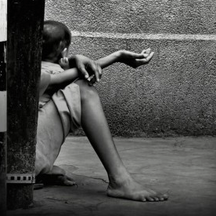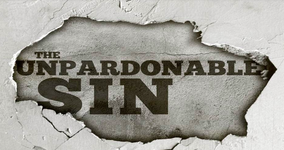|
to the confrontation and the seeming ultimate curse of total unforgiveness is all about Jesus vs. Jerusalem temple leadership.  It is interesting that contemporary church leadership typically uses the threat of blasphemy of the Holy Spirit against lay-people who do not surrender to how that leadership understands their own authority and how they perceive God’s will over those very lay-people’s lives. However, church leaders cannot escape the narrative fact that the Mark 3 Beelzebul episode itself, the preceding conflict thread (2:1–3:6), and, as well, the Sower parable (4:1–12) seem specifically directed at them. Jesus uses the convention of shame in the Beelzebul story, pointing to a needed correction within church leadership. For church leaders a posture of shame is needed, which once adopted reminds them of the illusive nature of status, the dangerous allure of power, and the recurring failure of faulty structures to guard the gospel and the church from the destructive influences and seductive cultural patterns that oppose God’s reign over all spheres of humankind. It should not surprise us that the shaming inherent within the Beelzebul episode, intertexted through Mark’s Old Testament links, connects church leaders to the church’s responsibility (and neglect) for the economically vulnerable. Caring, protecting, and advocating for the poor gives away power and public association with those living with the effects of poverty risks lowering one’s church community status. However, maintaining power and its enabling structures so that one’s social standing and status remain in place (even among, and more particularly, the Christian community) at the expense of the weakest and most vulnerable among us is synonymous with blasphemy against the Holy Spirit—breaking covenant, risking outside status and, thus, the condition of being eternally never forgiven. The biography of Jesus vs. Jewish leaders in Mark 1-3 is linked to the biography of the disciples, who like the ones beside Jesus (i.e., his associates and extended family, 3:21; cf. 6:1-6) and like Jesus’ earthly family (3:31–32), are at risk of being outside (6:51–53; 8:16–21; 8:34–38; cf. 9:33–34; 11:31; 16:14), if they, too, are not doers of God’s will (3:33–35). This is particularly relevant to church leaders, as they stand before the Mark 3 text (i.e., the Outsider-Insider sandwich), for the Beelzebul episode ought to shame them in those areas that are too closely identified with that which opposes God’s rule and kingdom (cf. Mark 1:15; 3:25). Mark’s Beelzebul episode functions similar to OT penitential prayers, allowing the reader/listener to enter a life narrative that reflects an appropriate shame for allowing those destructive forces and influences to distract from obedience to God’s word and work in the world. And like OT penitential prayers, a disposition of shame humbles the reader/listener before their “disobedience to the Mosaic ideals” that often reflects “mistreatment of the poor and the weak,” and gives them a way home that maps a spiritual disposition for restoring a fractured obedience to God. Interestingly after confessing that Jesus is the Messiah, Peter is soon rebuked as a surrogate of Satan’s interests: “Get behind Me, Satan; for you are not setting your mind on God’s interests, but man’s” (Mark 8:33). Significant to the reader/listener is the immediate juxtaposition of the Peter-Satan rebuke and Jesus’ admonishment that true followers must deny themselves (the opposite of power, an emptying of power) and take up their cross (v. 34). Church leaders who intentionally incorporate social action in a church’s evangelistic activities fulfill the obedience implications of the Beelzebul episode and, thus, raise Jesus’ honor rating in the public sphere. Without such a public disposition, church leaders are further warned that “whoever is ashamed of me and of my words in this adulterous and sinful generation, of him will the Son of Man also be ashamed when he comes in the glory of his Father with the holy angels” (Mark 8:38).
0 Comments
Dietrich Bonhoeffer said, we need to “smudge” ourselves with “the hard complexities of the world.” Jean Bethke Elshtain reminds us that Bonhoeffer wrestled with “the problem of dirty hands.” She wrote:
This morning I am drawn to the popular 3:16 verse of John’s Gospel: “For God so loved the world, that He gave His only begotten Son, that whoever believes in Him shall not perish, but have eternal life.” Mostly, we read John 3:16 without much contemplation or connection to where the verse sits in John’s narrative. We simply wretch it out of its place and attach it to those sinners outside the church. This is a Billy Graham verse to move the crowds of the unsaved to a personal decision for Jesus. The words of John 3:16 are the content of a Christian evangelistic tract to make it easier for us to “witness” to total strangers, asking, “Are you going to heaven or to hell?” John, the apostle condemned to die in a vat of boiling oil and when he would not die, banished to a desert island because of the testimony of Jesus (Rev 1:9)—this John--however, did not record these words for “the sinner,” but for the church to get their hands a little dirty.
John 3:16 is hinged on an Old Testament story (John 3:14-15; Numbers 21:4-9) where the people of Israel had complained about God’s provisions and rebelled against the original windy Spirit who led them into a dangerous place, and, then, how God sent poisonous snakes to kill off the rebels. (How dare he; God is love—no, he is also messy and holy and like that windy Spirit that does whatever it wants.) Snakes. It’s now more of a dangerous place to which the Israelites had gotten themselves into. And they wanted out. The only way: cry for help and repent. The only means: Live with the snakes, but trust a bronze snake statute to cure the poisonous bite. Just look at the raised symbol made of bronze and you will be saved.
This is the connection of John 3:16, the place where, amid the rebellion, we find our own way home, our own salvation as a church. John 3:16 reminds the complaining insiders (here at church) that God saves sinners—even those rebellious, stiff-necked, outsiders, for it is “whosoever” believes (and that can be scary, even dangerous for a church). There goes that windy Spirit again, blowing down and on wherever it so desires. We can’t choose the “whosoever.” But our own—our own church’s—rebellion against God is often seen in our refusal to identify with the messy places God’s Spirit chooses to blow us. For, we see in the next chapter (John 4) that the windy Spirit blows Jesus right into dirty territory, filled with outsiders, to talk specifically to a whoring, half-breed Samaritan woman (the truly marginalized of Jesus’ day). That windy Spirit, with the news of God’s love, has the habit of showing up in all the wrong places. If we truly believe what John 3:16 says, we will accept that that windy Spirit might put us in places where are hands might just have to get dirty, with and among some very messy "whosoever." |
AuthorChip M. Anderson, advocate for biblical social action; pastor of an urban church plant in the Hill neighborhood of New Haven, CT; husband, father, author, former Greek & NT professor; and, 19 years involved with social action. Archives
February 2024
Categories
All
|
Pages |
More Pages |
|


 RSS Feed
RSS Feed